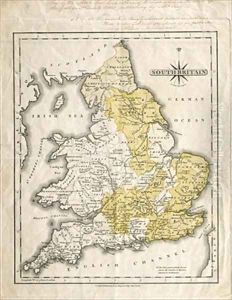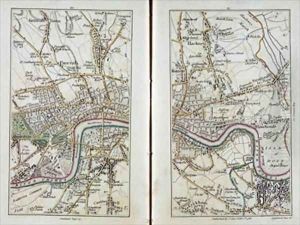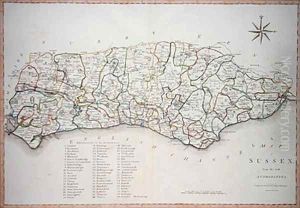Cary, John Paintings
John Cary was an English cartographer and engraver, renowned for his highly detailed and accurate maps, which have made significant contributions to the field of cartography. Born in 1754, Cary embarked on his career in map-making at a time when the demand for accurate geographical information was soaring, driven by the expansion of the British Empire and the burgeoning interest in exploration and navigation. Unlike many of his contemporaries, Cary distinguished himself through the exceptional precision and clarity of his maps, which were based on the most reliable and up-to-date sources available. Cary's work covered a wide range of geographical areas, producing not only maps of different parts of the United Kingdom but also detailed plans of cities, road maps, and atlases of the world. One of his most notable contributions was the 'Cary's New and Correct English Atlas' published in 1787, which became a standard reference work for English geography and was widely acclaimed for its accuracy and comprehensiveness. He also produced 'Cary's New Map of England and Wales with Part of Scotland,' which featured an innovative system of road mapping that was a precursor to the modern road atlas. Beyond his work as a cartographer, Cary was also involved in the manufacture of globes, scientific instruments, and other navigational aids, illustrating his broad interest in geography and exploration. His dedication to the craft of map-making and his meticulous attention to detail earned him a reputation as one of the foremost cartographers of his time. Cary's legacy persists not only through his contributions to cartography but also through the continued relevance of his maps in historical research. He passed away in 1835, leaving behind a rich body of work that continues to be celebrated for its precision, beauty, and utility.


